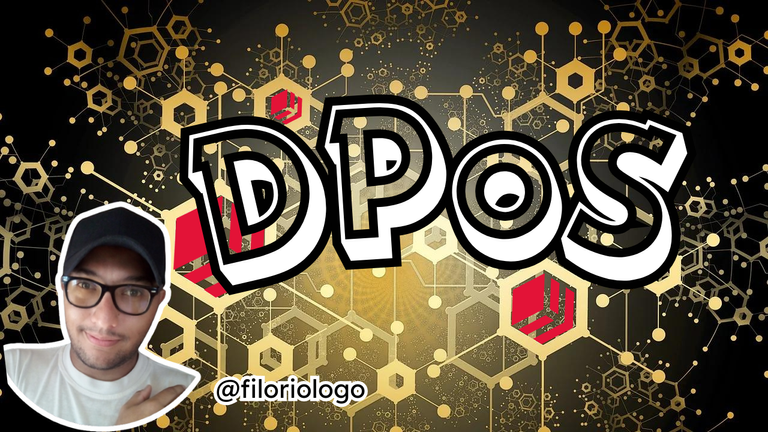About the DPos protocol

SourcePixabay
The most important crypto event in Venezuela, La Caracas Blockchain Week is approaching, so I've been reading a little more than usual about Hive and blockchain, reviewing concepts and learning new things. I've always thought that the best way to learn is to teach others, or talk to other people, or in this case write. So I decided to write a little about the DPos Protocol, now well, what you will read next is a reflection on the protocol that Hive has as DNA. Trying to stick to theory, so let's talk about the DPos protool.
The DPos (Delegated Proof of Stake) protocol in Spanish translates as delegated proof of participation, it is a consensus that some blockchains use, in our case Hive to reach an agreement on decisions regarding the future of the blockchain and in a strict sense to watch over the functioning of the blockchain, that is, to know which transactions will be part of each block.
This protocol is based on an idea in a voting system by reputation, in which the people who have Hive in stake can vote for the delegates, these delegates are known as nodes or witnesses, in charge of watching the new blocks and making decisions about the rules of the protocol.
In the blockchain world there are many consensus mechanisms, Dpos is an evolution of the PoS (Proof of Srake) protocol in which those who have bet the currency as a guarantee to participate in the validation and consensus.
How do the PoS and DPoS protocols differ?
I consider that the main difference lies in that in PoS those who bet the coins participate directly in the validation and decision-making, and on the other hand, in DPoS, those who bet the coin participate in the decision-making through delegates who are chosen by voting, the greater the stake, the greater the influence and participation. Now, this is one of the key points in which I would like to stop a little and develop this idea a little more.
Thanks to the DPoS protocol, people who bet the blockchain currency can vote for delegates, who will validate the new blocks. The voting power of each person depends on the amount of coins bet. The greater the stake, the greater the power of decision. This has the direct consequence that each of the delegates chosen by the community of investors or holders of stake, has the responsibility of validating the blocks and proposing changes to the protocol rules.
At a philosophical level, this has really innovative implications if we think about it in relation to power, we can say that it is a delegation of power, but this is an issue that we can leave for another occasion since we would get out of the technical and we would fall into speculation and philosophical dissertations.
Returning to the technical, the blockchains that use the DPoS protocol have determined the number of delegates, in the case of Hive, they are 20 delegates. These delegates must act honestly and competently, since they can be replaced by others if they lose the trust or support of those who have voted for them.
The holders of the currency can change their vote at any time if they do not agree with the performance or performance of their delegates. Now, these delegates have to reach a consensus on what transactions are valid and which blocks are added to the chain. This is one of the things that differentiates this protocol from others, such as the one used by Bitcoin, which uses PoW (Proof of Work).
You might be wondering about the advantages of the Dpos protocol, so
There is greater scalability and performance of the blockchain, since the number of validators is reduced and the speed of block creation can be increased, for example, the blocks in Hive are created every one second.
Energy-wise there is very little consumption, so the operational costs are really low since a great computing power is not necessary.
Another of the advantages that seem incredible to me is that it promotes democratic participation and governance of the blockchain, since the protocol provides voice and vote to all those who own the currency in stake.
Since delegates can be replaced or promoted in a matter of seconds, there is an incentive for honest and efficient behavior, also an edifying vision with respect to the future of the blokchain.
We talk about advantages, now well it is fair to think about possible disadvantages, and the disadvantages that come to my mind is that if there is misinformation, it can cause a low participation of the community and indirectly affect the governance of the blockchain.
Aware of this possible weakness, I would like to invite people to participate in the decision-making of the blockchain, and to vote for witnesses and participate in governance.
Versión en Español
Se acerca el evento crypto más importante de Venezuela, La Caracas Blockchain Week así que he estado leyendo un poco más de lo habitual sobre Hive y blockchain, repasando conceptos y aprendiendo nuevas cosas. Siempre he pensado que la mejor manera de aprender es enseñar a otros, o hablar con otras personas, o en este caso escribir. Así que decidí escribir un poco sobre el Protocolo DPos, ahora bien, lo que leerás a continuación es una reflexión sobre el protocolo que Hive posee como ADN. Intentando apegarme a la teoría, así que hablemos sobre el protoolo DPos.
El protocolo DPos(Delegated Proof of Stake) en español se traduce como prueba de participación delegada, es un consenso que utilizan algunas blockchain, en nuestro caso Hive para lograr un acuerdo sobre las decisiones con respecto al futuro de la blockchain y en sentido estricto velar por el funcionamiento de la cadena de bloques, es decir, saber cuales son las transacciones que formaran parte de cada bloque.
Este protocolo se basa en una idea en un sistema de votación por reputación, en el que las personas que posen Hive en stake pueden votar por los delegados, a estos delegados se les conoce como nodos o testigos, encargados de velar los nuevos bloques y tomar decisiones sobre las reglas del protocolo.
En el mundo blockchain hay muchos mecanismos de consenso, el Dpos es una evolución del protocolo PoS (Proof of Srake) en el cual los que tienen apostado la moneda como garantía para participar en la validación y el consenso.
¿Cómo se diferencian los protocolos PoS y DPoS?
Considero que la diferencia principal radica en que en el PoS los que apuestan las monedas participan directamente en la validación y toma de decisiones, y por otro lado el DPoS, los que apuestan la moneda participan en la toma de decisiones por medio de delegados que son escogidos mediante votaciones, a mayor stake mayor influencia y participación. Ahora bien, este es uno de los puntos claves en el cual me gustaría detenerme un poco y desarrollar un poco más esta idea.
Gracias al protocolo DPoS las personas que apuestan la moneda de la blokchain pueden votar por los delegados, estos podrán validar los nuevos bloques. El poder de voto de cada persona depende de la cantidad de monedas apostadas. A mayor stake mayor poder de dedición. Eso tiene como consecuencia directa que cada uno de los delegados escogidos por la comunidad de inversores o tenedores de stake, tiene la responsabilidad de validar los bloques y proponer cambios de las reglas des protocolo.
A nivel filosófico esto tiene implicancias realmente innovadores si lo pensamos en relación del poder podemos decir que es una delegación de poder, pero, esto es un tema que podemos dejar para otra ocasión ya que nos saldríamos de lo técnico y caeríamos en especulaciones y disertaciones filosóficas.
Volviendo a lo técnico, las blockchain que usan el protocolo DPoS tienen determinado la cantidad de delegados, en el caso de Hive, son 20 delgados. Estos delegados deben actuar de manera honesta y competente, ya que pueden ser reemplazados por otros si pierden la confianza o el apoyo de quienes han votado por ellos.
Los tenedores de la moneda pueden cambiar su voto en cualquier momento si no están desacuerdo con e rendimiento o desempeño de sus delegados. Ahora bien, estos delgados tienen que llegar a un consenso sobre qué transacciones son validas y que bloques se añaden a la cadena. Esto es de las cosas que diferencia a este protocolo de otros, como el que utiliza Bitcoin por ejemplo, que usa PoW (Proof of Work).
Seguro puedes estar preguntándote por las ventajas del protocolo Dpos, así
Hay una mayor escalabilidad y rendimiento de la blockchain, ya que se reduce el numero de validadores y se puede aumentar la velocidad de la creación de bloques, por ejemplo, los bloques en Hive se crean cada un segundo.
Energéticamente hablando hay muy poco consumo, así que los costes operativos es realmente poco ya que no es necesario una gran poder de computo.
Otra de las ventajas que me parecen increíbles es que fomenta la participación democrática y la gobernabilidad de la blockchain, ya que el protocolo proporciona voz y voto a todos los que poseen la moneda en stake.
Ya que los delegados pueden ser reemplazados o promovidos en cuestión de segundos, hay un incentivo al comportamiento honesto y eficiente, también una visión edificante con respecto al futuro de la blokchain.
Hablamos de ventajas, ahora bien es justo pensar en posibles desventajas, y la desventajas que vienen a mi mente es que si hay desinformación, puede provocar una baja participación de la comunidad y afectar de manera indirecta la gobernabilidad de la blockchain.
A sabiendas de esta posible debilidad, me gustaría invitar a las personas a participar en la toma de decisiones de la blockchain, y efectuar sus votos por los testigos y participar en la gobernanza.

Posted Using InLeo Alpha
En el modelo que conocemos como democracias representativas, hay campañas políticas en las que cada partido impulsa la figura de su principal candidato (o candidatos, en caso de alcaldías, gobernaciones, etc). Los medios hacen grandes piezas de contenido para ayudar a la ciudadanía a informarse mejor sobre las opciones a elegir (generalmente es información que les conviene a los dueños de cada medio, pero no viene al caso 😆).
En fin, a las personas siempre les llega la información a sus manos.
¿En Hive tenemos algo similar? ¿una cuenta que sempre hable sobre los testigos, las opciones de voto?
¿Debemos invertir horas y horas en buscar información donde no la hay?
¿Se me acaba de ocurrir una buena idea que nadie ha intentado antes en Hive😄?